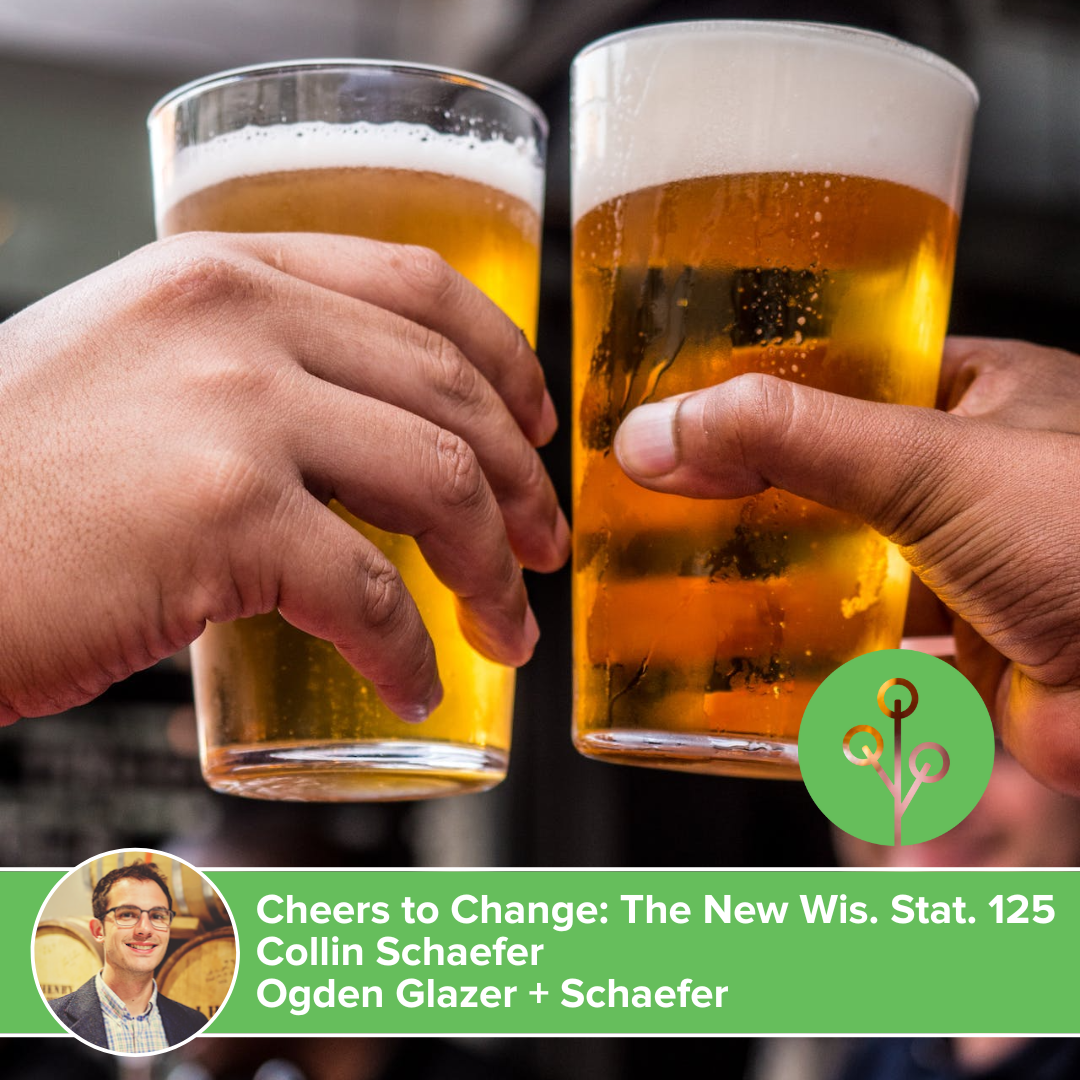The landscape of Wisconsin’s alcoholic beverage regulations has recently undergone substantial changes with the revision of Wis. Stat. Chapter 125. In this post we will be discussing one of the most substantial changes, specifically, the ability of breweries, wineries, and distilleries to offer beer, wine, and spirits (“full service retail” under the new statute) at their taproom\tasting room locations, subject to certain requirements (of course!). Read on for more information.
Historical Context:
Under the previous version of Wis. Stat. Chapter 125, producers of alcoholic beverages faced constraints, primarily limiting them to selling only what they produced. There were limited ways producers could work around these restrictions, but that came with extra licensing requirements from the federal government, state, and\or municipality. Although lawyers like me loved the complexity and the way it helped our bottom line, it was a major hurdle for the industry. From a business perspective specifically, the restrictions left producers in a bind, unable to fully meet the diverse preferences of their customers without navigating additional licensing complexities.
New Horizons: The Flexibility of Full Service Retail
The new Full Service Retail (“FSR”) regulations mark a turning point, offering producers unprecedented flexibility to meet the dynamic needs of their clientele. Crucially, this expansion comes without the burden of onerous licensing requirements or a looming fear of legal complications.
Below, we will break down the FSR requirements for breweries, wineries, and distilleries.
Brewery : Understanding FSR for Brewers
Production Minimum: A threshold of no less than 250 barrels annually is required for breweries seeking eligibility for Full Service Retail. If you cannot hit the minimum, then you are not eligible for FSR (however, see the lookback period below!)
Location Limits:
- Breweries producing between 250-2,499 barrels annually are able to establish a single FSR location.
- Those in the 2,500 to 7,499 barrel range can operate two FSR locations.
- Breweries brewing at least 7,500 barrels annually are granted the privilege of operating up to three FSR locations.
Lookback Period: The law includes a lookback period of three years, allowing breweries to maintain FSR eligibility if they have hit the production threshold at any point during the previous three years.
Distillery: Understanding FSR for Distilleries
Production Minimum: Distilleries must produce a minimum of 1,500 liters annually to qualify for Full Service Retail. If you cannot hit the minimum, then you are not eligible for FSR (however, see the lookback period below!)
Location Limits:
- Distilleries producing between 1,500 to 4,999 liters annually are able to establish one FSR location.
- Those distilling 5,000 to 34,999 liters can operate two FSR locations.
- Distilleries producing at least 35,000 liters per year are permitted up to three FSR locations.
Lookback Period: The law includes a lookback period of three years, allowing distilleries to maintain FSR eligibility if they have hit the production threshold at any point during the previous three years.
Winery Dynamics: Understanding FSR for Wineries
Production Minimum: Wineries must annually produce 1,000 gallons to qualify for Full Service Retail. If you cannot hit the minimum, then you are not eligible for FSR (however, see the lookback period below!)
Location Limits:
- Wineries producing 1,000 to 4,999 gallons annually are entitled to establish a single FSR location.
- Those producing 5,000 to 24,999 gallons yearly can expand to operate two FSR locations.
- Wineries producing at least 25,000 gallons per year are permitted up to three FSR locations
Lookback Period: The law includes a lookback period of three years, allowing wineries to maintain FSR eligibility if they have hit the production threshold at any point during the previous three years.
Final Thoughts on FSR
- FSR privileges are not subject to municipal licensing requirements. That means a producer will not be required to obtain a municipal license (Class A, B, C) from the municipality in order to engage in FSR. However, municipalities can limit FSR by ordinance and the Department of Revenue will still require municipal approval in order for a producer to take advantage of FSR. What “municipal approval means” is still unknown, as the DOR rulemaking process is still ongoing.
- The lookback period is helpful, but it would still be catastrophic if a producer was eligible for multiple FSR locations but couldn’t hit the required thresholds during the three year period.
- The new law does not add self-distribution privileges for wineries or distilleries, so breweries engaging in FSR will have to purchase wine or distilled spirits through a wholesaler\distributor. If a brewery is permitted to self distribute, they could self-distro to a winery or distillery engaging in FSR, however.
We will have more updates detailing other big changes in the new Wis. Stat. 125 soon. Thanks for reading.

